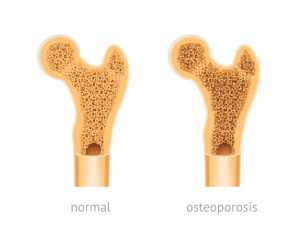Vitamin D Test Cost, Purpose, Procedure, And Test Result Interpretation
What is Vitamin D?
Vitamin D is a fat-soluble vitamin that is essential for healthy bones. It is also known as “sunshine vitamin.” Vitamin D is produced in our body as a result of exposure to sunlight. It is one of the essential vitamins that our body requires since it aids in calcium absorption, regulates insulin levels, regulates kidney function, and numerous other functions. Vitamin D plays an active role in the functioning of bones and the functioning of the immune system, nerves, and muscles. Vitamin D test is regarded as the most precise way to measure the levels of vitamin D in our blood.
Vitamin D2 and vitamin D3 are the two major types of vitamin D. Fortified foods such as dairy products, cereals are rich in Vitamin D2. Eggs and fatty fish contain vitamin D3. Vitamin D3 is produced in our body as a result of exposure to sunlight. Here is a detailed article on the sources of Vitamin D. Both vitamin D2 and vitamin D3 are converted into 25(OH)D or 25 hydroxyvitamin D in our blood. It is also known as Calcidiol.

There are various reasons why Vitamin D is required for our health-
- It regulates the level of phosphorus, calcium, and magnesium in our blood
- Promotes cell growth
- Improves functionality of lungs
- Help reduce the risk of cancer, stroke, diabetes, heart diseases, etc
- Promotes bone mineralization
- Prevents depression
- Aids in weight loss
What is a Vitamin D Test?
Vitamin D test is mainly done to
- Check the level of 25 hydroxyvitamin D in our blood.
- Monitor and screen bone disorders.
- Measure the level of Vitamin D in people who are suffering from chronic illnesses and autoimmune diseases.
Lower levels of the vitamin indicate organ damage, nutritional problems, and, most importantly, bone disorders. The level of 25(OH)D indicates how much vitamin D you have in your blood. The vitamin D test determines the level of vitamin D in your blood, which can be low or high.
You need to undergo a vitamin D test if you have any of the following symptoms as a result of lack of Vitamin D-
- Bone malformation
- Bone weakness
- Bone softness
- Fracture

If you’ve higher risk factors of vitamin D deficiency, you’ll be asked to undergo a vitamin D test. Some of the risk factors include-
- Lack of exposure to sunlight
- Osteoporosis and other bone diseases
- Age, especially if you’re old
- Dark complexion
- Obesity
- Previous gastric bypass surgery
- Problem with parathyroid gland
Breastfed babies are at risk if they’re not taking Vitamin D supplements.
If there is vitamin D deficiency, your bones will become soft and malformed, resulting in bone disorders such as osteomalacia and rickets. Children and older adults have more risk of medical conditions as a result of vitamin D deficiency. Low levels of vitamin D results in asthma in children and cognitive impairment in adults.
Vitamin D deficiency can occur if you have a dark complexion since melanin reduces your skin’s ability to produce the vitamin due to exposure to sunlight. There is a high risk of vitamin D deficiency in older adults with a dark complexion. Certain medical conditions, such as cystic fibrosis and Crohn’s disease, can impede vitamin D absorption. Some obese people have vitamin D deficiency since the vitamin is absorbed by fat cells.
Vitamin D Test Procedure
You need to fast for four to eight hours before the Vitamin D test. The procedure takes less than 5 minutes. Your blood sample will be collected by injecting a small needle into your vein. The blood will be collected into a vial or test tube. Sometimes you might feel a slight sting when the needle is inserted into your vein. There is no special preparation required before the test. There are no risks associated with a vitamin D test.

Vitamin D Test Results
If your blood test results indicate vitamin D deficiency, then it means-
- You’ve lack of exposure to sunlight
- You aren’t consuming food rich in Vitamin D
- Have trouble in absorbing Vitamin D
Low levels of Vitamin D indicate liver or kidney disease. Vitamin D deficiency can be cured using supplements or by making dietary changes. Lower levels of vitamin D can also be due to the use of certain medicines such as rifampin, phenytoin, etc. High levels of vitamin D can be due to taking excess vitamin D supplements and pills. It can be rectified by discontinuing the medicines and supplements. Higher intake of Vitamin D leads to a condition known as hypervitaminosis D. High levels of Vitamin D can even damage your blood vessels and organs. Hypovitaminosis D is the lack of Vitamin D or Vitamin D deficiency in our blood.
Vitamin D levels are measured in nanograms/milliliter(ng/mL) and nanomoles/liter(nmol/L). Various vitamin D levels are-
- Lower than 30 nmol/L- Deficiency
- Between 30 nmol/L and 50 nmol/L- Probable deficiency
- Between 50 nmol/L and 125 nmol/L- Normal level
- Above 125 nmol/L- High levels
If you have bone pain symptoms, you have to undergo a specific scan to check bone density. Patients undergoing osteoporosis drug therapy have to undergo a vitamin D test. Vitamin D deficiency is also related to the risk of cardiovascular diseases, immune diseases, and even cancer. Your doctor can determine whether you need treatment by measuring the level of 25(OH)D in the blood and could suggest increasing your vitamin D intake, mainly by changing your diet, by taking vitamin D pills and supplements. Your doctor can also monitor 25(OH)D levels in the future, through the test. The blood test results depend on your gender, age and method of testing. The results vary from one lab to another. The doctor will explain the results to you and suggest if you require treatment or further testing. The result report will be available in two weeks.

How Much Does the Vitamin D Test Cost?
The average Vitamin D test cost is around 1600 INR. The vitamin D test should be done as early as possible if you have any of the associated Vitamin D deficiency symptoms. You need to undergo a vitamin D test at least once a year.
What is the Difference Between Vitamin D and Vitamin D3?
Both vitamin D and D3 are most commonly found in our diet. But there are specific differences between both. Vitamin D is also known as ergocalciferol, while vitamin D3 is also known as cholecalciferol. The main difference that sets them apart is the source.
Vitamin D is mainly found in plant sources and fortified foods, while vitamin D3 is mainly found in animal-sourced food. Some of the sources of Vitamin D are- fortified foods such as cereal-based foods and dairy products, mushrooms, and dietary supplements. Some of the sources of Vitamin D3 are- fish oil, egg yolk, beef liver, and nutritional supplements. Your body will produce Vitamin D3 when you’re exposed to sunlight. Vitamin D and Vitamin D3 are absorbed into the bloodstream. But there is a difference in how our liver metabolizes both the vitamins. Vitamin D is metabolized into 25(OH)D, and Vitamin D3 is metabolized into 25(OH)D3 by the liver. Both 25(OH)D and 25(OH)D3 are collectively known as calcifediol.
Before the test, make sure that you tell your healthcare provider that you’re taking supplements, or other medicines since it can affect the blood test results.